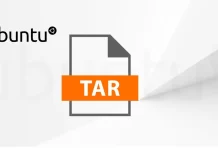
If you’re on a hunt to chose the best web hosting for your small business, you’ve probably realized that tons of companies are providing this service – and each offering a different set of features.
And in a bid to determine which of the available options is best for your business, you’ve in no doubt stumbled upon a ton of questions, e.g.,
- What is VPS, shared, and dedicated hosting?
- What features should you always look out for when choosing a hosting solutions provider?
- Should you go with a hosted or self-hosted solution?
These are some of the most pertinent questions you must answer while searching for the best web hosting for small business. And if this wasn’t challenging enough, you also have to contend with the process of switching hosting providers – a tedious and time-consuming task.
Considering all this, it pays to know which hosting solutions provider is the best for your business. Below you’ll learn everything you’ve ever wanted to know about choosing the best hosting for small business and more!
First – The Basics
What is web hosting?
Web hosting refers to a service that stores your web application or website and makes it accessible to users across a multitude of devices, e.g., tablets, smartphones, and desktops. A typical web application or site comprises multiple files, such as:
- Code
- Images
- Text
- Videos
These files must be stored on special computers known as servers. The best hosting for small business you settle on gets to maintain, configure, and operate the physical servers your business has leased to store its files.
Furthermore, your web application and web hosting service providers can offer additional support that may include website monitoring, site backup, and security. These extra services will help free you up from routine maintenance tasks, allowing you to focus on the core business functions.
Why do you need web hosting for small business?
Hosting your business website on an internal server instead of working with a trustworthy web hosting provider can be expensive and time-consuming. A typical web hosting solutions provider will offer numerous benefits, such as:
- Security and Compliance: Traditional best web hosts use an end-to-end approach to secure critical hosting infrastructure.
- Reliability: The hosting company will take away the stress of having to perform ongoing server maintenance. Their services will free you up to focus on IT application delivery as opposed to focusing on server management.
Why does your small business need a website?
The last few years have seen an active push for consumers to support small businesses and “shop local.” Such a push has only been made possible thanks to the widespread use of the internet by shoppers, showing why every business needs to have an online storefront.
Besides the ability to market to consumers outside your immediate geographic area, the following are other reasons why you should invest in a business website:
It Serves as A Welcome Mat
Your small business website will act as the brand’s gateway door and welcome mat. It should help educate those who visit it and elicit emotions, thus enabling the consumer to continue engagement with your brand.
Build Credibility
Social media can allow you to build a presence online, but it will restrict you in terms of technology use, design, and other functions. Owning a website will help your brand to improve its branding, boost its credibility, and increase its flexibility.
The Website Will Streamline Your Operations
Access to the right tools makes it easier to manage and grow the business. A business website can act as your communication platform, enabling you to easily manage your blogs, product pages, and social sharing buttons.
Best Web Hosting Providers for Small Business
HostGator – Best for Content Heavy Sites
 Small business owners and entrepreneurs running content-heavy websites can benefit from HostGator’s hosting solution, which features unlimited storage with every plan. With unlimited storage, you don’t have to worry about bandwidth limits regardless of the site’s content or number of visitors. Plus, every plan includes 24/7/365 support and a money-back guarantee. | Our Expert Rating: Major Perks
|
Namecheap – Best for Technical Support
 For affordable web hosting solutions for small businesses, choose a host with round-the-clock tech support. Namecheap excels in this area, providing 24/7 chat-based technical support. Their customer support team is knowledgeable and willing to assist with any issue, including making site changes on your behalf. | Our Expert Rating: Major Perks
|
Bluehost – Most Trusted by Users Online
 Bluehost is a renowned name in the hosting industry, offering affordable plans with a range of business-oriented features. All plans include essential elements like staging area, SSL certificate, and a free custom domain. Business features such as Google My Business and Google Ads are available across all plans. Bluehost is also known for its beginner-friendly approach, making it suitable for newbies in website hosting. | Our Expert Rating: Major Perks
|
Disclaimer: Tech-Recipes partners with Bluehost and may earn commission should you make any purchases through this link. Our opinion, however, is based on independent research, testing and honest impressions.
DreamHost – Best Web Domain Hosting for Small Business with The Cheapest Plans
 DreamHost’s Shared Unlimited plan is ideal for small business hosting. With an annual payment, subscribers get unlimited emails, websites, and traffic for only $2.95 per month in the first 12 months. The plan includes free WordPress website migration, automated backups, security updates, and a free WordPress page builder theme. The page builder offers 200+ templates, drag-and-drop editing, and a Quick-Start Inspirations Wizard. | Our Expert Rating: Major Perks
|
IONOS – Best Introductory Rate
 IONOS is the top choice for small businesses seeking cost-effective hosting solutions. Startups and businesses with future growth plans can benefit from its offerings. With an introductory rate of $1 per month on a 12-month contract, it proves to be quite affordable. | Our Expert Rating: Major Perks
|
Different Types of Web Hosting
There are a few common types of hosting, so let’s look at each one individually.
Shared Hosting
It’s the best type of hosting for an entry-level website. In this type of hosting, your website will live on the same server currently in use by many other websites. Here, your website will have to share the available resources, including CPUs and RAMs. To illustrate, imagine living in a shared apartment with roommates – you share resources while each has their own space.
VPS Hosting
VPS hosting serves as a middle ground between shared and dedicated hosting. It’s the best option for site owners who need more control but are not yet ready to upgrade to dedicated server hosting. In this option you still use a shared environment (a server), however, your resources are just your own.
Dedicated Server Hosting
Dedicated hosting provides you with more control over the server where your files are stored. In this case, only your site will use this server, meaning you’ll have full root and admin access. You can, therefore, control everything pertaining to how it runs. This is the most secure hosting alternative, however, it is definitely the most expensive.
Cloud Hosting
It’s the current buzzword in the tech sector and refers to multiple computers working together. These computers can run various applications using the combined computing resources at their disposal. But why is it so interesting?
It is a type of web hosting that utilizes the power and resources of multiple interconnected servers, thus forming a virtual network called the cloud. With cloud hosting, websites are hosted on a distributed infrastructure, which offers several advantages. Firstly, it provides scalability, allowing websites to easily handle increased traffic and accommodate growth. Additionally, cloud hosting offers high availability, as the website’s data is replicated across multiple servers, reducing the risk of downtime. It also provides flexibility, enabling users to customize their resources and pay for what they use. Overall, cloud hosting offers a reliable and adaptable solution for businesses and individuals seeking robust and efficient web hosting services.
Managed or Unmanaged Hosting
Small business-managed hosting packages are the most common today. In managed hosting, the services provider looks after the day-to-day management of server hardware, standardized applications, and operating systems.
On the other hand, unmanaged hosting might be a good fit for more experienced users. Unmanaged web hosting refers to a hosting service where the user is responsible for all technical aspects of their website.
Unlike managed hosting, which offers comprehensive support and maintenance, unmanaged hosting requires the user to handle server setup, security, updates, and troubleshooting independently. While it grants greater control and flexibility, it demands a higher level of technical expertise. This option is ideal for experienced developers and businesses seeking complete customization and cost-efficiency, but it may not be suitable for those lacking the necessary technical skills or time to manage their hosting environment effectively.
Benefits of Investing in Quality Web Hosting for Your Small Business
Speed
Your business website must load quickly to retain visitors and maintain low bounce rates. The best web hosting for small businesses can help with this, ensuring that your visitor experience doesn’t become affected.
Downtime Alerts
Your host will automatically monitor the performance of your site and will send you alerts if the site isn’t running as expected. Alerts can also include issues related to fluctuating traffic or the server going down.
Frequent Backups
The best hosting for small business solutions will do what’s necessary to protect and back up your site and data. Frequent backups make restoring a site to a previous version possible whenever you encounter an issue.
Technical Support
Having a poor hosting team is the only other thing that’s worse than having the site go offline. A poor tech support team can’t be able to guide you through the restoration process, and this could lead to lost revenue, a damaged database, and tarnished reputation.
How to Choose the Perfect Fit
Gone are the days when you only needed to consider disk storage and available bandwidth when selecting the best domain hosting for small businesses. Today, you’ve to consider a myriad of factors which includes the following:
Server Security, Reliability, and Uptime Scores
Unstable network connections and weak servers can cause your site to go offline unexpectedly. Such occurrences will eventually lead to low rankings on Google and deny you potential e-commerce sales.
Check the Types of Hosting Services Available
As mentioned earlier, different hosting services are available. Therefore, consider the type of services on offer, and compare them with your needs.
Customer Service
How fast and effective is the customer support team in resolving technical issues is extremely If possible, go for a hosting company that provides 24/7 customer support and prioritize those with chat support.
Best Practices for Ensuring Good Performance with Your Website
The following are the optimization strategies you must implement to receive the best performance:
Start by Choosing the Right Hosting Provider
The best web hosting for small business providers offers different baseline performances. Choose the one that provides the best performance across the board.
Leverage Browser Caching
Caching can significantly enhance your site’s loading times. You can leverage it by requesting the site visitors to store some of the static files on their computers.
Enable GZIP Compression
GZIP compression allows the site to reduce the size of some of its elements, helping boost its speed and loading times.
Get Rid of Excess Plugins
Installing too many plugins to your site can accidentally give users access to its backend, making its operations harder than they should be.
Optimize All Images
While images make a site better and more beautiful, there’s a need to optimize all high-quality images to help shorten their loading times.
Pros and Cons of Teaming Up with A Hosting Provider?
Pros
- Surprisingly Affordable Prices: The competition to emerge as the best web hosting services for small businesses has seen many hosting companies significantly slash their prices. Today, you can choose a top-tier hosting plan for less than $5 a month.
- Performance Becomes a Priority: As is the case with athletes crossing a finishing line, the first application or website to load walks away with all the fame and glory. Web hosts will pair you with CDNs which will reduce load times by caching pages.
Cons
- You May Lack Enough Room to Grow: Lack of enough room for growth is a common problem affecting site owners using shared hosting plans. Given the number of finite resources available, your website will become constrained if it becomes a hit too soon.
- Lax Security Protections: The reality is that no one company is immune from data breaches. Therefore, it takes some trust to allow your customer data to be stored miles away and in data centers you cannot access.
Final Verdict
In your quest to find the best host for your small business website, you’ll need to start by understanding that not all hosts are created equal. As our list of the top six hosts shows, each hosting provider differs from the next.
The key to picking the best host is to determine what you need from the site, compare this with your budgetary allocation, and start looking at platforms that can help you achieve your goals. Of course, also make sure to keep an eye on add-solutions, support, and pricing.
Additionally, as you may have noted, many of the top hosting providers provide 24/7 customer support, among many other features and extras. Try contacting the different platforms to learn about their offerings and assess how these may benefit your small business.
FAQ
While there are many types of hosting to choose from, the choice to go for depends on your needs. Every available plan will cater to certain specifications. Therefore, understanding your needs can make it easier to choose the right plan.
For example, look at the following:
I. Shared Hosting – best for low-traffic websites
II. VPS Hosting – Recommended for sites that have outgrown shared hosting
III. Managed Hosting – Ideal for users who don’t have the time to manage the servers
IV. Dedicated Hosting – Best for large websites where the owners want to retain control
V. Cloud Hosting – Ideal for sites that are growing rapidly
If you’re running a small business website, you need to know how to keep it secure.
For this, you should:
• Ensure your plugins and software are up-to-date
• Install an SSL certificate
• Choose a strong, smart password
• Deploy anti-malware software
• Use a secure web host
• Run regular backups
• Tighten your network security
Yes. Many reputable web hosting service providers offer free hosting services for small businesses looking to launch their websites. Some of these hosts come highly recommended by WPBeginner and WordPress.
However, please note that such offers will always come with a catch, as the host platforms still need to make money. The catch can include upselling their other services, displaying ads, or causing downtime. If your are a complete beginner, this might not bother you. However, once your business and website start to grow you would need to look into better options.
Choosing the wrong small business managed hosting provider can significantly impact the performance of your e-commerce website. Luckily, knowing the mistakes to avoid when making your choice can prevent this from happening.
Common mistakes site owners make include the following:
1. Selecting the wrong type of web host for the website’s needs
2. Ignoring security
3. Failing to investigate the “unlimited” offer
4. Choosing a host that doesn’t have a refund policy
5. Opting for a free hosting package, without extensively checking the offer
6. Going for the cheapest option without considering its features
7. Failing to understand your limitations
Knowing what features to look for in a web host can save you a lot of time and unnecessary headaches. Remember, these features will impact its performance, hence the need to take time and do it right.
Features to consider will include the following:
I. Disk Space – how much disk space is the hosting provider offering with its plans?
II. Security – check for the availability of an SSL certificate
III. Uptime Guarantee – the closer it is to 100% uptime, the better it is for you
IV. Loading Speed – slow loading times will lead to high bounce rates and low Google rankings
V. Support – go for those providing 24/7 support

















